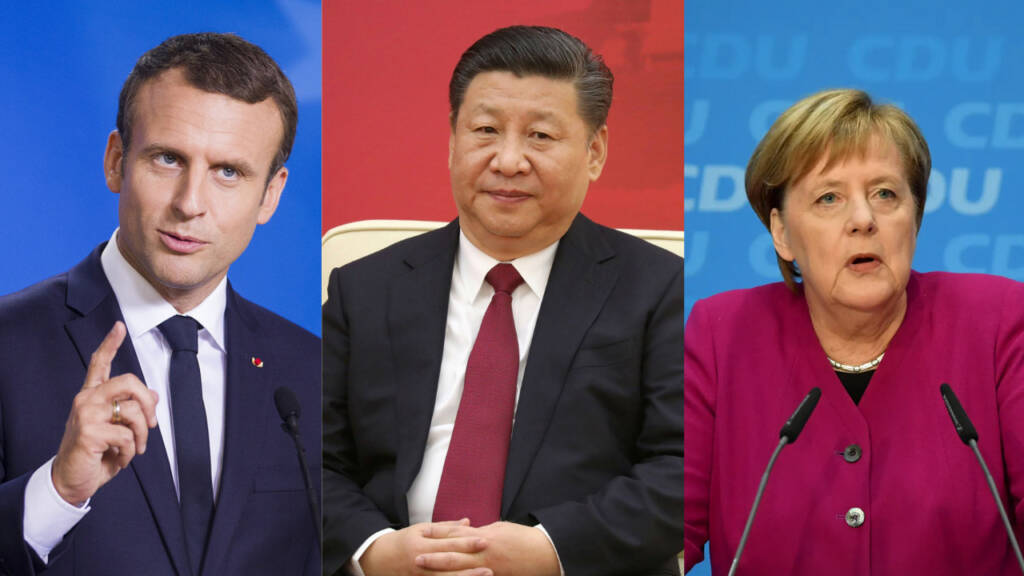On 29th March 2019, Xi Jinping went to Paris to see Emmanuel Macron, President of the French Government, Angela Merkel of Germany, and Jean-Claude Juncker of the European Commission. The motive was clear, to further the deal for an investment treaty that had been hanging for a long time and to talk about a European policy paper that had described China as a “systematic rival”. But Jinping’s main goal was to project a China, unafraid to assert its interest. It failed dramatically as a few weeks later France sent a warship through the Taiwan Strait.
During the meeting, Merkel leaned on diplomatic language to describe the policy paper and said, ‘The language showed Europe recognized China’s growing strength and influence.’ Juncker joked about the EU’s inability to agree to what China really was but Macron was insensitive to Jinping’s feelings. He said, ‘It’s true, you are a rival’.
This excerpt gradually found itself in the way China under Jinping was dealt with by Germany, the EU, and France.
The United Kingdom and France have chipped away at Huawei’s ability to compete in Europe, and although Germany remains cautious, there are more and more intense debates out there about Europe’s reliance on China. This summer, the EU countries unanimously supported sanctions, a move that was once unimaginable, after Beijing had limited the freedoms of Hong Kong.
Ms Merkel of Germany remains dedicated to communicating with Jinping, European officials said. She has been the EU’s key force to complete an investment deal that would further bind the Chinese economy of Europe and is pushing to cement an agreement before a new U.S. president takes office. Still, in Germany, which has 5,200 companies operating in China, concern about China’s market power is increasing. And some EU legislators threaten to obstruct the pact’s approval when it hits them.
The EU’s ambassador in Beijing, Nicolas Chapuis, said at a Beijing energy forum earlier this month, “What happened during the last year…is a massive disruption or reduction in support in Europe, and elsewhere in the world, about China, And I’m telling that to all my Chinese friends, you need to seriously look at it.”
The Jinping government had said that Beijing’s negative views are a concern predominantly in Western countries, and Washington has stoked them. One senior official from the Foreign Ministry said that many Chinese diplomats feel committed to an increasingly self-confident back home population and a leadership that wants to demonstrate the rising stature of China, even at the risk of antagonizing foreign officials.
Most European leaders, earlier in Jinping’s tenure, saw China primarily as an opportunity, a vast market whose rising stature could help balance U.S. supremacy. But Since, backlashes have erupted across the continent, especially in smaller countries such as the Czech Republic and Sweden, where Chinese diplomats’ heavy-handed acts have fuelled anger, and among business leaders who worry about unfair competition with Chinese businesses.
Mr Juncker worked behind the scenes to lift the confidence of politicians, while he was the President of the European Commission. Moreover, Australian diplomats, who in a little-known attempt to help similar ones in Washington, have crisscrossed Europe linking opponents of China to counterparts in smaller nations.
This has placed greater pressure on the bigger powers of Europe, including Germany, to stand up for the interests of the continent even though it threatens to blow up from Jinping’s China.
Zhang Jianmin issued a warning, “If the Czech Republic does not withdraw their stance in respect to Huawei, Chinese visitors will stop coming and there will be other financial consequences.” Inundated by visitors, Prague was keen to dilute the crowds. Not backing down, the Czech officials focused on getting European officials to Prague at an Internet security summit with the White House National Security Council. Chinese officials had not been invited.
Even the Australians at the event warned, “Today Beijing is punishing us, but tomorrow it intention do the same to you. The Germans attending took notes.”
But since the turn of the year, one European power stood the tallest in the face of Chinese aggression under Jinping, all over the globe. France under Macron showed Europe that business can still be maintained while protecting our interests and others from the dubious might of the paper dragon.
From blatant criticism to an open physical show of power in the East China sea and the Indian Ocean, calling out China in Africa and blocking the investment deal, Macron made sure the world recognized that China’s might under Jinping is limited and can be challenged.
Under Jinping, China’s favourability all over the globe has dipped enormously, while smaller states do tend to give it a leeway, they often call other major powers to neutralize any possible Chinese aggression. China’s aggressive policies and diplomatic practices have seen it become the least liked country in the world, maybe just above North Korea. And, it is no longer seen as a vast opportunity that needs to be appeased but as a rabid dog that needs to be neutralized.
